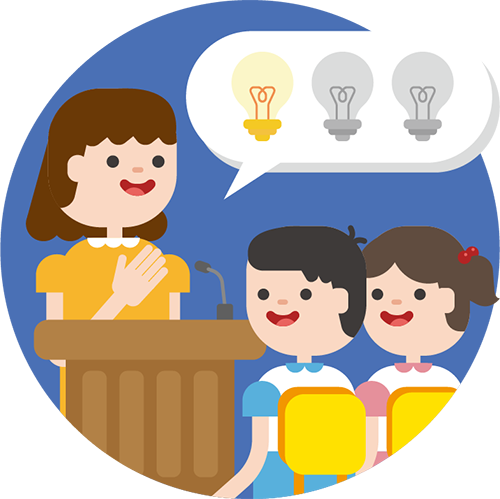






The school talk introduced the current situation of energy consumption and renewable energy in Hong Kong. From the interesting and engaging presentation, students could understand the relationship between innovative technology and green living. It could increase students' eco awareness and inspire them to make behavioral changes to start a greener lifestyle.
Covid-19 has changed the entire way of learning and teaching among students and teachers. Given the situation, we have changed the form of the school talk from face-to-face to online educational video supplemented with a comprehensive learning handout. Students can understand the energy usage of individuals, the community and the world while reflecting on the importance of green living. Students are encouraged to take action towards environmental protection.

Design Thinking was used as the framework for developing students' sense of empathy. The students were allowed to observe and interact with willing participants outside their classrooms to discuss about the power usage in schools, homes, and communities. Then, the students generated their own creative ideas and solutions to develop prototype using the STEM model and social innovation based on the responses and problems raised from the participants of power usage.
Due to restriction from Covid-19, some of the educational workshops are carried out online. By utilizing various online teaching platforms, real-time interactions between students and instructors are allowed. While students can learn Design Thinking concepts and have group discussions with other students, instructors are able to provide comments and suggestions to students based on their ideas. The real-time interaction enhances the effectiveness and efficiency of learning and teaching.

By online meeting, students were able to interact with the Engineers from different ranges of businesses of Mitsubishi Electric (Hong Kong). Students could learn more about job duties and career path in the engineering field.

After creating the first draft of the prototypes, students will continue to improve their innovative energy-saving solutions by collecting feedbacks from different stakeholders and users outside the classroom. Students will also have the opportunity to modify their prototypes at the Maker Space. Teachers and students are encouraged to initiate campaigns, projects and activities that involve students of other classes to further promote green living in school.